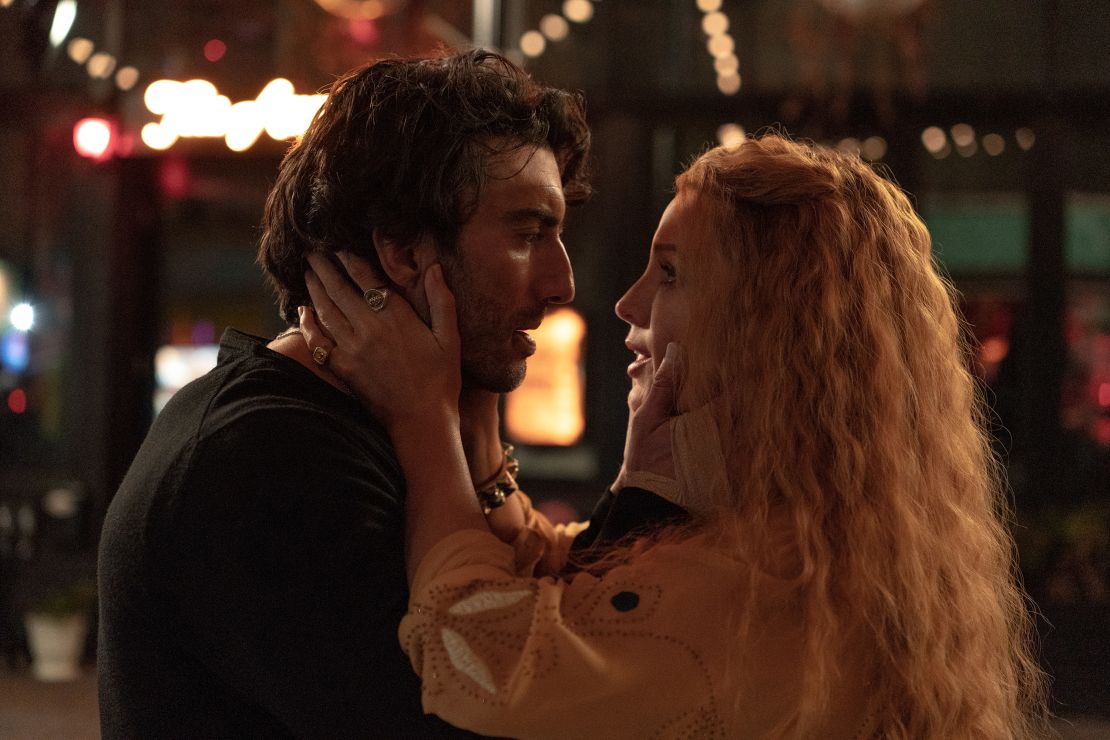Justin Baldoni sues New York Times for $250 million over Blake Lively story
Justin Baldoni is firing back after being accused of sexual harassment by his co-star Blake Lively, filing a libel suit against The New York Times on Tuesday, claiming that the newspaper published an article “rife with inaccuracies, misrepresentations, and omissions” that relied on Lively’s “self-serving narrative.”
Lively filed a complaint with the California Civil Rights Department in December, accusing Baldoni of sexual harassment and retaliation. In the bombshell complaint, Lively claimed that after she raised concerns of sexual harassment on the set of their film, “It Ends With Us,” Baldoni and his team retaliated against her, leaking unflattering press to try to ruin her professional reputation.

Lively’s complaint was first reported in The New York Times, which published an article titled, “‘We Can Bury Anyone’: Inside a Hollywood Smear Machine,” on December 21. The 4,000-word article contained contents from the Civil Rights Department complaint, which typically remain confidential.
In the wake of the New York Times article and Lively’s complaint against Baldoni, he was dropped by the talent agency, WME, which also represents Lively and her husband, Ryan Reynolds. Lively received swift support across Hollywood SAG-AFTRA, the actors’ union, releasing a statement in support of her. Sony, the studio behind “It Ends With Us,” also released a statement standing by Lively.
Now, Baldoni is alleging that Lively created false sexual harassment accusations so she could take control of the film, then set out on a campaign to “reshape her public persona” with “salacious, headline-grabbing allegations” in The New York Times at Baldoni’s expense.
“Lively’s cynical abuse of sexual harassment allegations to assert unilateral control over every aspect of the production was both strategic and manipulative,” Baldoni’s lawsuit states. “Simultaneously, her public image suffered as a result of a series of high-profile blunders, which she tried to deflect by blaming Plaintiffs for the public’s prying interest into the foibles of an A-list celebrity. This is nothing but an excuse. Fame is a double-edged sword, but Lively’s tactics here are unconscionable.”
The suit claims that The New York Times failed its “journalistic integrity” to vet Lively’s sexual harassment and retaliation allegations, noting that the paper “relied almost entirely on Lively’s unverified and self-serving narrative, lifting it nearly verbatim while disregarding an abundance of evidence that contradicted her claims and exposed her true motives.”
A spokesperson for The New York Times told CNN the publication plans to “vigorously defend against the lawsuit.”
“The role of an independent news organization is to follow the facts where they lead,” Danielle Rhoades Ha, spokesperson for the Times, told CNN in a statement Tuesday. “Our story was meticulously and responsibly reported. It was based on a review of thousands of pages of original documents, including the text messages and emails that we quote accurately and at length in the article. To date, Wayfarer Studios, Mr. Baldoni, the other subjects of the article and their representatives have not pointed to a single error. We published their full statement in response to the allegations in the article as well.”
Attorneys for Lively told CNN in a statement that “nothing in this lawsuit changes anything” about Lively’s claims.
While Lively initially filed a complaint against Baldoni and his Wayfarer production company with California’s Civil Rights Department, attorneys for the actress filed a federal complaint on Tuesday.
“We look forward to addressing each and every one of Wayfarer’s allegations in court,” Lively’s attorneys said.
Baldoni’s suit was filed by attorney Bryan Freedman in Los Angeles Superior Court on behalf of 10 plaintiffs total, including Baldoni, Wayfarer Studios, his producing partner Jamey Heath, who was also accused by Lively of sexual harassment, and Baldoni’s publicist and crisis manager, Jennifer Abel and Melissa Nathan.

Baldoni co-starred with Lively and directed “It Ends With Us,” which is based on the book of the same name that centers on a couple and domestic violence in their relationship. Wayfarer Studios, acquired the rights to book and produced the film, which became a box office success.
Lively’s complaint included screen captures of text messages and correspondence that Lively’s team alleged showed orchestrated attempts on the part of Baldoni’s PR representatives to hurt her reputation in the media as part of a “social manipulation campaign.”
Baldoni’s lawsuit contains pages upon pages of text messages that Freedman told CNN are proof that the text messages published in Lively’s initial complaint were “doctored and manipulated.” He alleges in his complaint that the Times “intentionally” omitted texts which “dispute” Lively’s narrative.
“If the Times truly reviewed the thousands of private communications it claimed to have obtained, its reporters would have seen incontrovertible evidence that it was Lively, not Plaintiffs, who engaged in a calculated smear campaign,” Baldoni’s suit states.
One of the most egregious claims in Lively’s complaint was that Baldoni and Heath “entered her makeup trailer uninvited while she was undressed, including when she was breastfeeding.”
Baldoni’s suit offers a rebuttal to that specific claim, showcasing a text that appears to be from Lively to Baldoni that reads, “I’m just pumping in my trailer if you wanna work out our lines.”
(CNN has not verified the authenticity of any of the text messages. The text message where Lively allegedly invites Baldoni into her trailer is marked as being sent in June 2023.)
After Lively’s complaint was filed, a snowball effect ensued with both sides taking jabs at each other, raising questions as to how those private text messages were acquired. A subsequent lawsuit, filed by Baldoni’s former publicist, Stephanie Jones, alleged that those text messages came from the phone of her former employee, Abel — Baldoni’s current publicist — who was among the individuals Lively accused of orchestrating a smear campaign against her.
Baldoni, Heath, Abel, Nathan and Wayfarer all denied Lively’s original claims and asserted Lively was the one leaking negative press about Baldoni.
“These claims are completely false, outrageous and intentionally salacious with an intent to publicly hurt and rehash a narrative in the media,” Freedman said in a statement to CNN when Lively’s complaint was first filed.
On Tuesday, Freedman told CNN that Lively, her team and the New York Times engaged in a “vicious smear campaign.”
“In doing so,” Freedman said, “they pre-determined the outcome of their story, and aided and abetted their own devastating PR smear campaign designed to revitalize Lively’s self-induced floundering public image and counter the organic groundswell of criticism amongst the online public. The irony is rich.”
“While their side embraces partial truths, we embrace the full truth,” Freedman added. “And have all of the communications to back it.”
–
This story was originally published on CNN.com January 1, 2025 edition.



